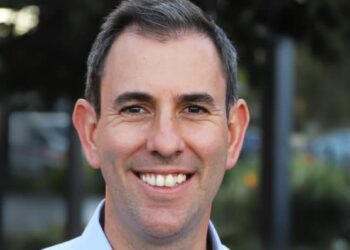Neil Sparks said if advisers have a client where it may be questionable as to whether the benefit is a member benefit or a death benefit, obtaining a personal private binding ruling is highly recommended.
“The ATO has published recent guidance on paying superannuation death benefits, specifically, looking at what I will call a death benefit withdrawal, a full redemption of a member superannuation account requested by the member while they’re still alive, but paid after the member’s death, and whether the payment will be a member benefit or a death benefit,” Mr Sparks said in a recent podcast for BT TechKnow.
Mr Sparks said the guidance addresses the issue of advisers or members relying on private binding rulings that were not given for those individual circumstances and the potential issue of SMSF trustees using signed and dated documents to request the payment of their benefits.
“In the case of terminal illness or potential death the updated guidance highlights that if the trustee of an SMSF was aware of the death of a member at the time of approving a member benefit payment request, then the benefit should be paid as a death benefit,” he said.
“The tax consequences of whether a benefit is paid as a member benefit or a death benefit can be significant. A member benefit paid to a person aged 60 or over is tax free, whereas a death benefit paid to adult children, for example, a non-tax dependent, may be taxed at up to 32 per cent.”
However, the grey areas arise if a member requested an amount to be paid before they died but received it after their death.
“This may still be a member benefit in some limited cases. And this is determined by the facts and circumstances surrounding by the payment,” Mr Sparks said.
“At the time of payment, the trustee must assess whether it’s a member benefit or a death benefit, based on the facts known at the time, including the terms of the request from the member, the terms of the trust deed or any other governing rules, knowledge at the time the payment is made, including whether they are aware that the member has died, the entity that the payment is being paid to, for example, the member’s bank account, or the account of the legal personal representative, the circumstances and timing of the payment and whether the payment is made in line with the request made by the member.”
Mr Sparks said in the case of a fund which has an unrelated trustee, it may not have been notified of the member’s death but if in doubt advisers can always apply to the ATO for a private ruling.
At the recent SMSF Association National Conference, the ATO deputy commissioner – superannuation and employer obligations confirmed the position that if a trustee is paying benefits after a member has died, it would be highly unusual for that not to be a death benefit, particularly in situations where the trustee was aware that the member had died, or the money was paid to an account of the member or their legal personal representative.
“They also pointed out they know of situations where advisers to SMSFs may hold signed undated documents, requesting payment of the member benefits in case of terminal illness or impending death,” Mr Sparks said.
“The ATO stated that this practice won’t change the outcome. Unless there are highly unusual circumstances, the payment will still be a death benefit payment.”
He also warned that SMSF professionals and trustees should not rely on private rulings that have been issued regarding the characterisation of benefits.
“This guidance from the ATO makes it clear that the view is once a trustee is aware of the death of the member, then it should be dealt with as a death benefit payment,” he said.
“For advisers, a deathbed withdrawal may breach standard one or the code of ethics which states you must act in accordance with all applicable laws, including this code, and not try to avoid or circumvent their intent.”



Not sure when you last lodged a PBR request? They take months to issue. Unless there is some form of priority available that isn’t mentioned in the article?